Lady Cobbold, bohemian chatelaine of Knebworth House who opened it to the public – obituary
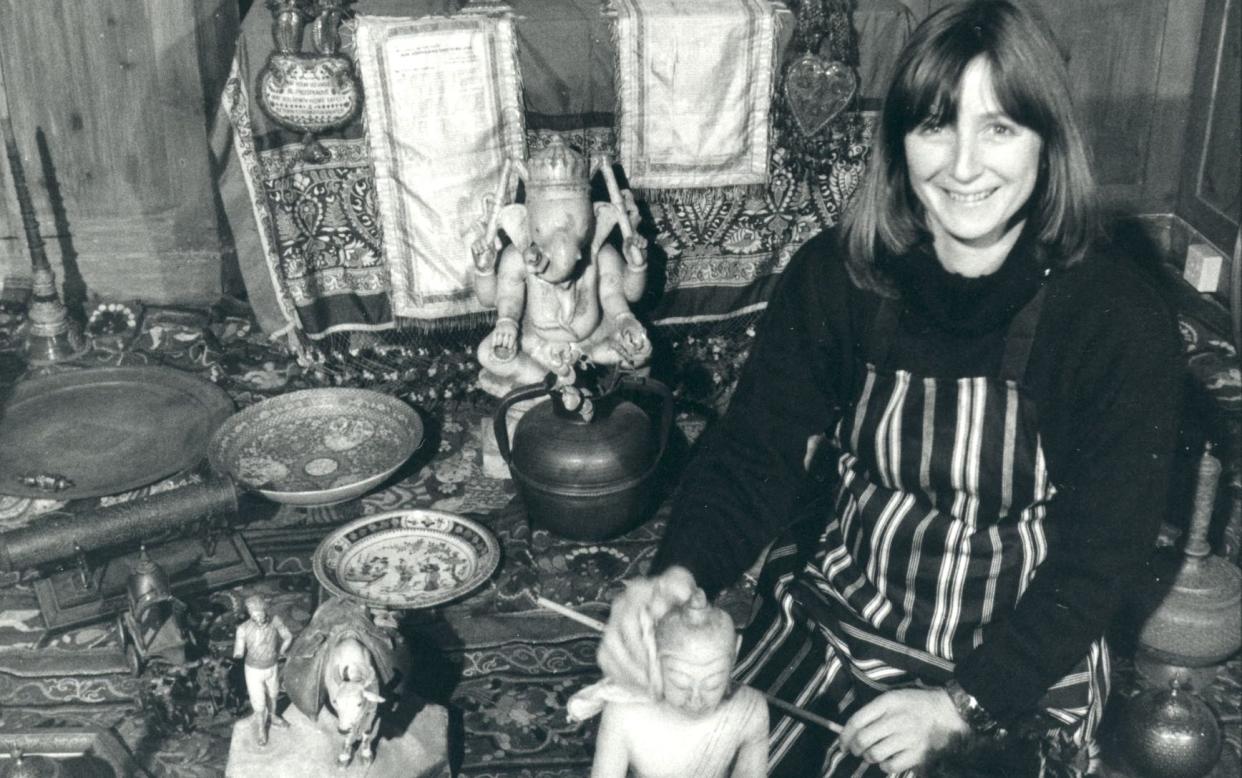
- Oops!Something went wrong.Please try again later.
Lady Cobbold, universally known as Chryssie, who has died aged 83, was a free-spirited and imaginative chatelaine of her late husband David’s ancestral home, Knebworth House in Hertfordshire; the couple kept it in the family against the odds by opening it to the public, for everything from rock concerts and film shoots to wedding receptions and Guide rallies.
An intriguing mixture of the aristocratic, the practical and the adventurous, Chryssie Cobbold was equally at ease with royalty, rock stars, and the public who flocked to enjoy the great house’s quirky grandeur.
Christina Elizabeth Stucley was born on April 25 1940 in North Devon, where her family owned two estates, Affeton Castle and Hartland Abbey. Her father was the hunting squire Sir Dennis Stucley; her mother Sheila, née Bampfylde, was the daughter of Lord Poltimore. Several Stucley ancestors featured prominently in Sabine Baring-Gould’s colourful historical account, Six Devon Rogues.
Chryssie, along with her brother and three sisters, enjoyed an old-style country childhood – huge family Christmases at the famously freezing Hartland, galloping around Exmoor on woolly ponies and earning pocket money catching moles for their skins. Her father and maternal grandfather each kept foxhounds, the former founding the Taw and Torridge pack and the latter becoming Master of Foxhounds of the Dulverton West.
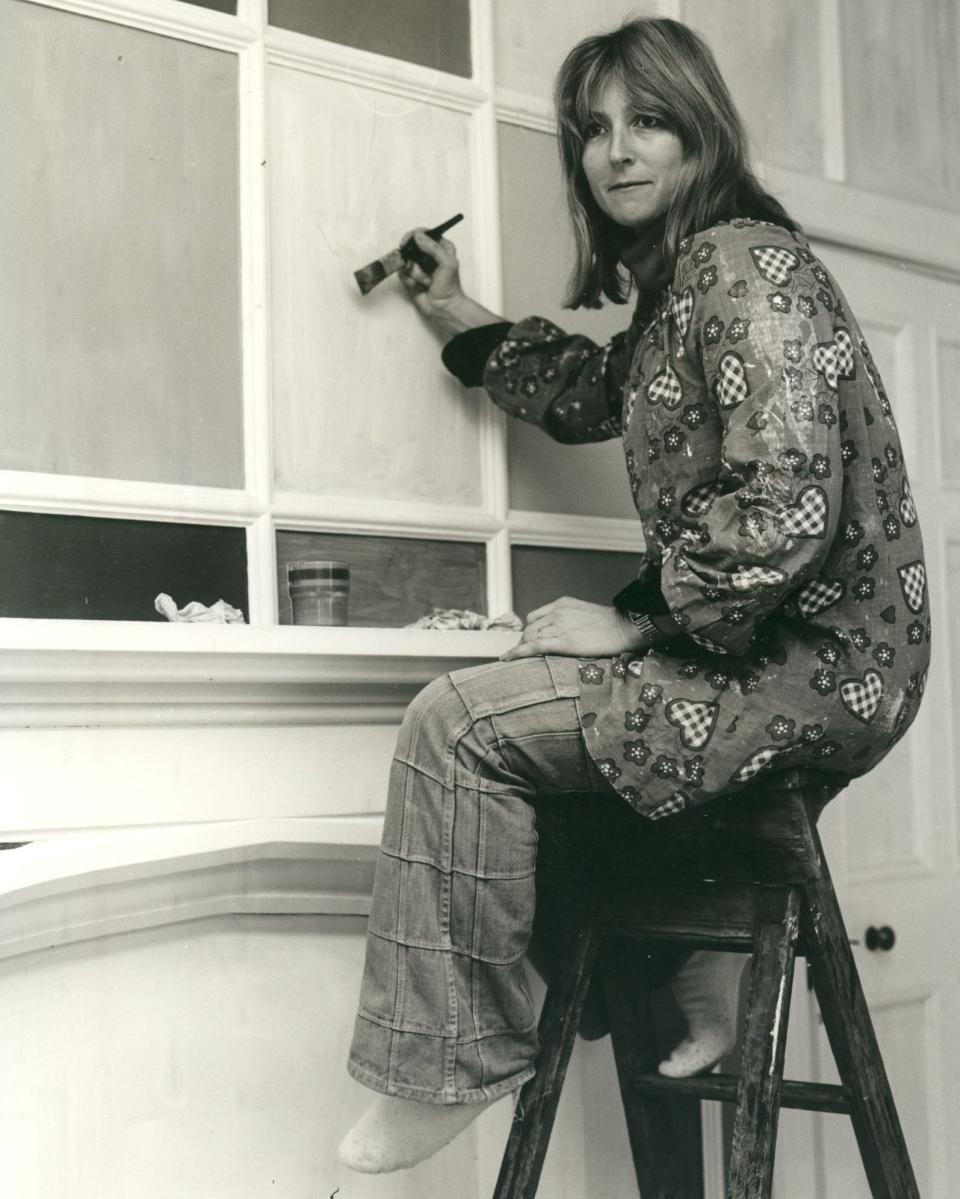
Sir Dennis shot four days a week and hunted two days; he lost an eye while shooting in Scotland when an Irish peer rashly shot down the line of guns. The peer at first denied responsibility, then flew into a rage when their host cancelled shooting for the day.
Chryssie was shocked to see a front-page photograph of her father being taken to hospital on a stretcher shrouded in bandages. After breaking his back steeplechasing he was forbidden to fight in the Second World War, and though he was given training roles with his regiment, the Royal Devon Yeomanry, he experienced survivors’ guilt as most of his battalion’s officers were killed.
Hartland Abbey was let out, first as a boys’ prep school, as Lady Stucley hated children and did not want 37 evacuees billeted with them as originally suggested. It then became a girls’ finishing school, the Monkey Club.
Chryssie attended Southover Manor, a small school in Sussex, and remembered the girls’ excitement at the regular appearance of a flasher on the train which ran through the grounds. Her father was resolutely non-musical, in contrast to her mother, a founder-member of Glyndebourne whose musical boyfriends included Sir Malcolm Sargent. Chryssie recalled that he was more interested in the daughters than the mother and was known for enjoying the company of teenage girls.
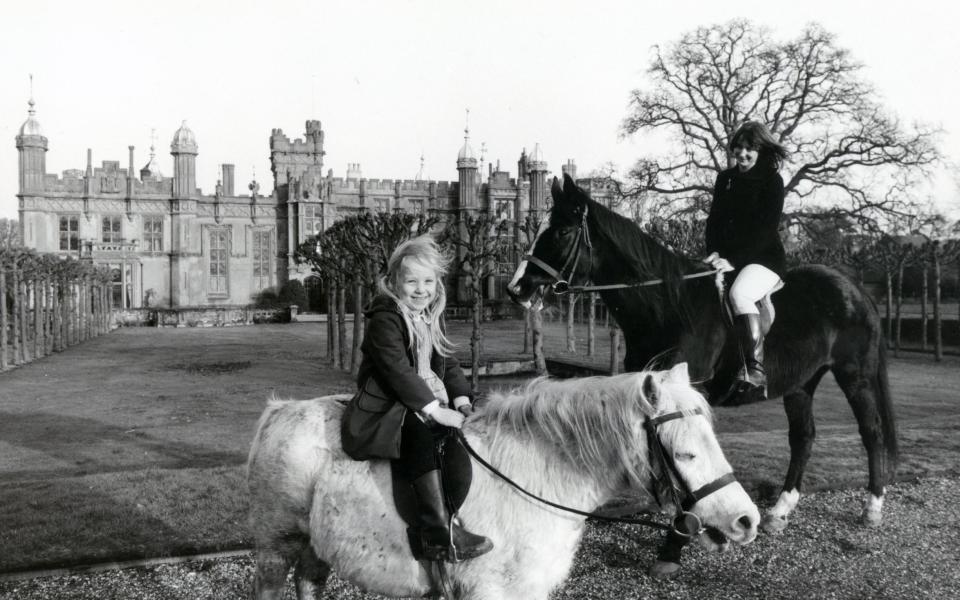
In 1957, she became one of the last debutantes presented at court and did the Season with her cousin Lady Teresa Onslow, who later married the humorist, Auberon Waugh. With few academic qualifications, but with artistic talent and a gift for craftwork and sewing, she took her first job, as a pattern cutter for Worth on £3 a week. “Luckily there were always lots of well-heeled boyfriends to take us out to glamorous dances and house parties,” she said.
Aged 18, at a debutante dance, she met the dashing David Cobbold, an Old Etonian banker, heir to the Knebworth House estate and great-great-grandson of the Victorian novelist Edward Bulwer-Lytton, the eccentric opium enthusiast who penned the much-parodied lines “It was a dark and stormy night” and “The pen is mightier than the sword”. David was smitten by her grave, large-eyed beauty and her adventurous spirit, as well as her low-cut green dress and long hair.
“He wandered over and asked, ‘Are you a mermaid?’ ” she recalled. “Yes, I am,” she replied, “and I grew up on the beaches around Hartland.” The couple married in 1961, shortly after Cobbold had changed his name by deed poll to Lytton Cobbold to preserve his mother Hermione’s distinguished name as both her brothers had been killed, Antony in a flying accident and John fighting at El Alamein.
In 1963, David’s father Kim, later the 1st Baron Cobbold, became Governor of the Bank of England and had no time to maintain the increasingly dilapidated Knebworth. Once a huge, redbrick Elizabethan manor house, it had been remodelled in spectacular Tudor-Gothic style in the 1840s by Edward Bulwer-Lytton’s mother Elizabeth. David’s great-uncle Edwin Lutyens made further additions.
Proud of their romantic family heritage, the Lytton-Cobbolds pleaded to be able to run it themselves and took over in 1969 despite parental fears that it would prove a financial millstone. Money was, indeed, tight and Chryssie’s father commissioned a pair of portraits of the young couple, teasing her: “By the time David’s made enough money to pay for the pictures, you won’t be worth painting.”
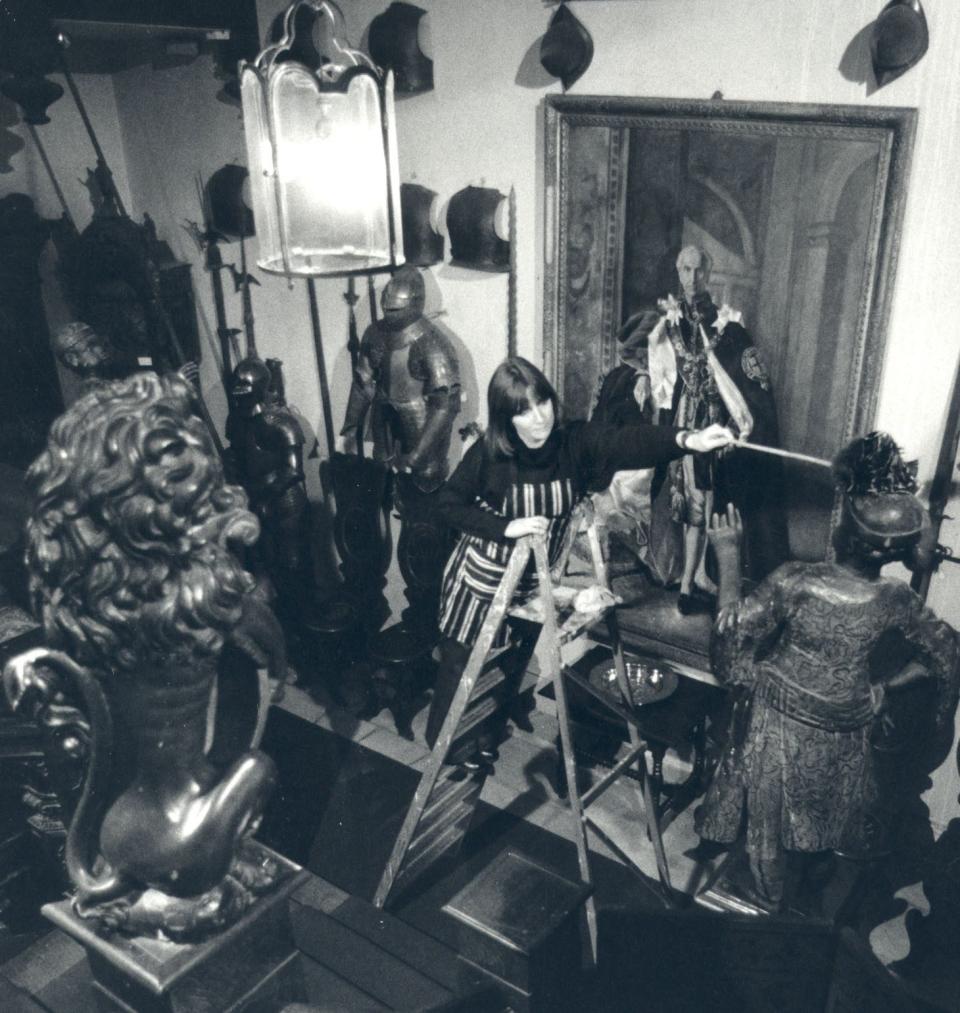
Always sensitive to supernatural presences, Chryssie Cobbold described several encounters in the picture gallery with a melancholy-looking grey lady wearing authentic late 18th-century clothes. Research revealed that she could have been the ghost of a Bulwer-Lytton ancestor heartbroken when abandoned at Knebworth by her rakish husband, who preferred the fleshpots of London.
The Cobbolds began renovating enthusiastically, replacing rotten curtains and threadbare carpets – despite numerous plumbing disasters and infestations of mice; she often woke to find them nibbling her toes.
Once visitors no longer risked being flattened by falling masonry, the couple introduced a string of tourist attractions, including lion cubs and adventure playgrounds, and welcomed the public to everything from steam rallies and wedding receptions to Scout jamborees and medieval jousting: a chain-mail-clad Lytton-Cobbold as “David of Knebworth” would thunder towards “The Black Knight”, lance fixed, at full gallop. Despite occasional spills, he continued jousting unscathed into his seventies.
In 1974, they staged the first of Knebworth’s famed rock festivals which over the years attracted the biggest names in music, including the Rolling Stones, Genesis, the Boomtown Rats, Cliff Richard, Pink Floyd and, in 1986, Queen’s final concert with Freddie Mercury, “A Night of Summer Magic”. Oasis’s two-night run in 1996 drew a combined audience of around 330,000 and more than 2.6 million applied for tickets, thought to be the largest-ever demand for concert tickets in British history. Robbie Williams’s 2003 concerts attracted 375,000 fans and caused a 15-mile traffic jam on the A1(M).
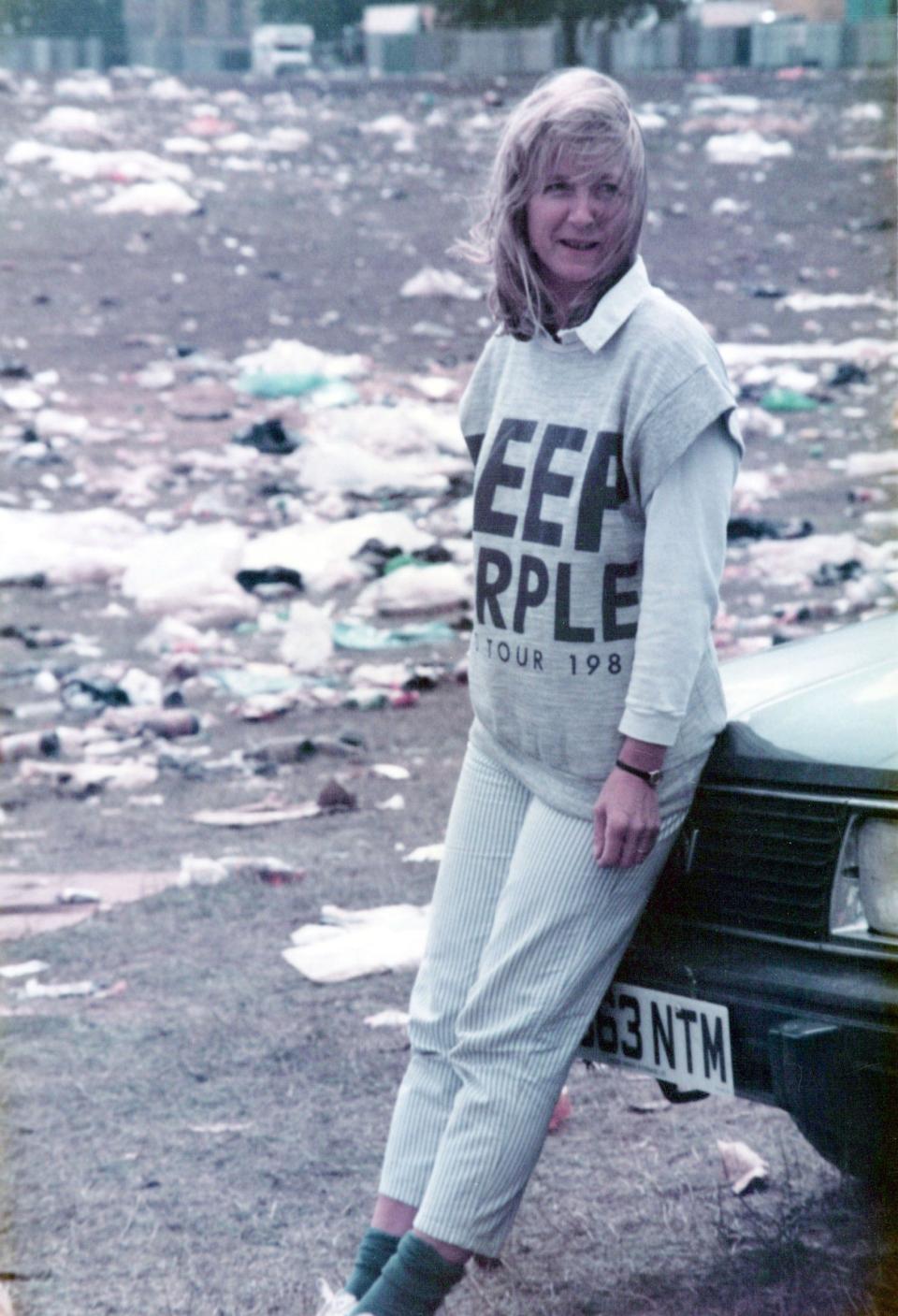
The Cobbolds had a famously open marriage – which survived the revelation that David had fathered two children with different women – and Chryssie often joked about his eye for a pretty girl. She herself enjoyed a romantic friendship with the Cornish aristocrat Peregrine Eliot, the 10th Earl of St Germans, who staged the popular Elephant Fayre festivals at his family seat, Port Eliot, and received lung and kidney transplants 15 years apart as a result of his hard-partying lifestyle.
But the Cobbolds’ sense of humour and mutual tolerance of each other’s foibles kept their partnership an enduring and loving one. In her bestselling memoir Board Meetings in the Bath: The Knebworth House Story (1986) Chryssie revealed that they kept their marriage fresh by regularly meeting up in the bathtub to discuss the day’s events; visitors to their London house in Little Venice were surprised to find a full-size bath installed in the kitchen for this purpose. She also wrote a compelling account of the dramas of staging the major concerts in the Park, Knebworth Rock Festivals (also 1986.)
The couple had a tremendous gift for friendship, enjoying the company of the young, eccentric and sparky and attracting such diverse characters as their neighbours Ken and Barbara Follett, Helena Bonham Carter, the Duchess of Devonshire and the singers Marty and Kim.
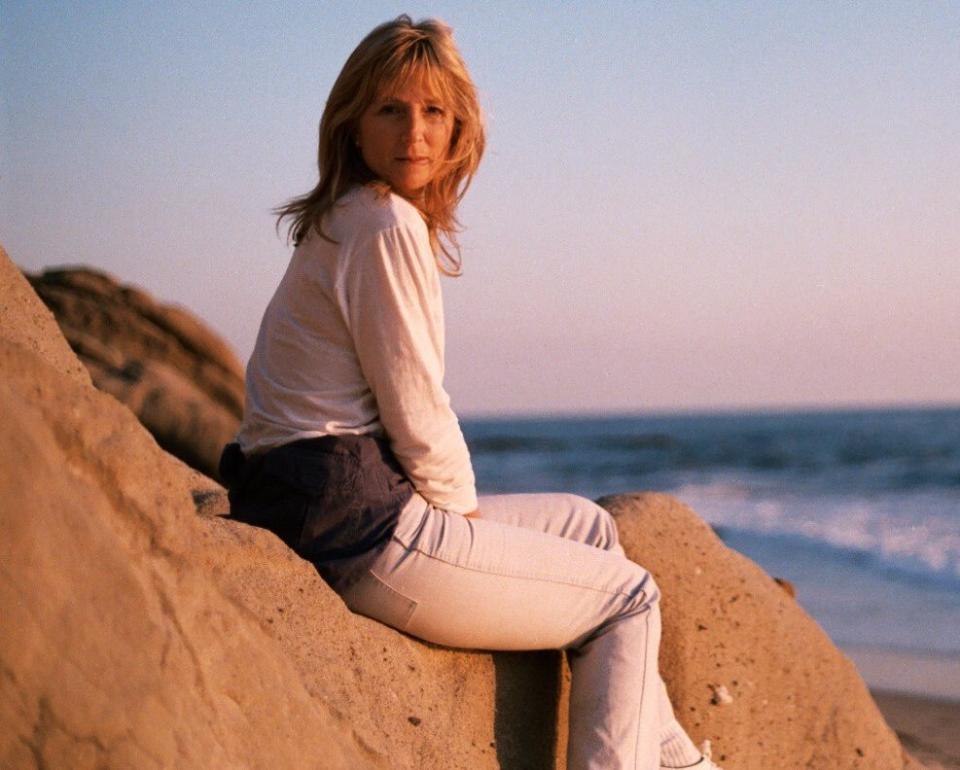
They were celebrated party-givers and organisers of amateur theatricals, bluebell picnics, tennis parties and concerts, often recruiting friends to perform in the elegant picture gallery at evenings celebrating favourite songwriters like Jerome Kern and Irving Berlin. For an “Underground” fancy-dress party at Knebworth, The guests dressed as different stations, including Dollis Hill (with a heavily bandaged dolly) and a near-pornographic Cockfosters.
When in the 1980s, two Eton friends of their eldest son Henry, the teenage Ugandan brothers Danny and Harry Matovu, suffered family problems, they informally adopted them, relishing their successes as talented jazz singers and later London lawyers.
After David’s retirement the Cobbolds secured the future of the cash-strapped estate for future generations, setting it up as a trust and developing estate land for housing and a hotel.
In 2000, they handed over the house to Henry and his American wife Martha and “downsized” to the 10-bedroom Park Gate House on the edge of the estate. The musical evenings and house parties continued as Chryssie nursed David through the Parkinson’s disease which marred his final years. After his death in 2022, she remained hugely hospitable, keeping open house for friends and extended family. She is survived by her daughter and three sons.
Lady Cobbold, born April 25 1940, died April 7 2024

